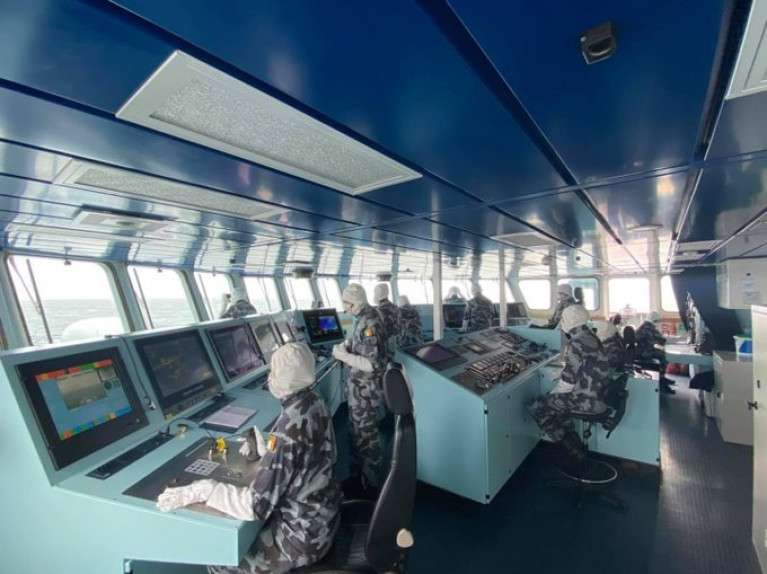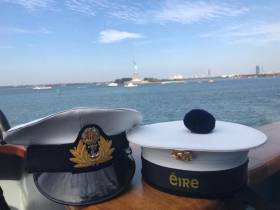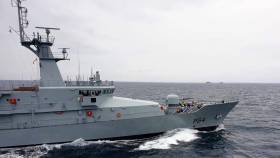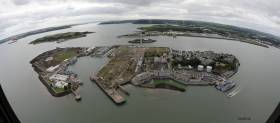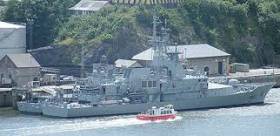Displaying items by tag: PDforra
Call from PDFORRA for Automatic Citizenship after Five Years in Defence Forces Service
PDFORRA the representative group of the Defence Forces, has called for automatic citizenship to be given to non-nationals who have completed five years' service in the Army, the Naval Service or the Air Corps and who have attained a conduct rating of good during that time.
Gerard Guinan, General Secretary of PDFORRA (Permanent Defence Force Other Rank) said non-nationals who were serving the State were having to spend thousands of euro in a protracted process to become Irish citizens.
According to figures supplied to PDFORRA by the Defence Forces, more than 200 non-nationals have successfully applied to become members of the Army, the Naval Service and the Air Corps over the past five years.
Membership of the Defence Forces is open to people who are not Irish citizens, but who are from other EU member states, along with Britain, Iceland, Liechtenstein and Norway.
Membership is also open to people who have been granted refugee status in Ireland.
More from RTE News here.
Members of Defence Forces Living On Board Ships ‘Deemed Unsuitable for Accommodation’
President of the Defence Forces representative body Pdforra has said conditions for members are so bad that 80 naval personnel are living on (ships), some of which were deemed to be unsuitable for accommodation when they were commissioned 35 years ago.
As The Irish Times reports, Mark Keane told the organisation’s annual conference in the Mount Wolseley Estate in Co Carlow yesterday that “soldiers, sailors and airmen” should have an accommodation allowance, similar to that available to gardaí, prison officers and fire officers.
However, accommodation was just one of a number of issues, including pay, promotion and medical care, which he said must be addressed to stem the outflow of key personnel from the Defence Forces generally.
Numbers in the Defence Forces have recently fallen by more than 600 to some 8,500, which he said was “well below the numbers required” to execute their tasks efficiently and safely.
He said numbers must be addressed as the “goodwill and esprit de corps is being eroded further as those left behind must pick up the pieces”.
The newspaper has more here on this story.
In an announced from the Government an action plan to deliver a €10 million package to restore pay to members of the Defence Forces.
As RTE reports, the Government said the package will immediately improve the take-home pay of members of the Defence Forces.
Minister for Finance, Public Expenditure and Reform Paschal Donohoe said work on the high-level plan to implement the recommendations of the Public Service Pay Commission would begin immediately.
He said the Government was committed to making steady improvements in pay to public servants but only to the extent that they are affordable and sustainable.
Minister of State with responsibility for the Defence Forces Paul Kehoe said the package was recognition by the Government of the challenges of recruitment and retention within the army, navy and air corps.
For more from the launch by the Minister of the new package click this link.
Organisation 'Very Sceptical' of Dept's Plans to Overhaul Haulbowline Accommodation for Sailors
An organisation which represents enlisted personnel in the Defence Forces says it's "very sceptical" about the Department of Defence's claim that it will address the accommodation crisis at Naval Service headquarters "as a matter of urgency".
PDFORRA's president Mark Keane, writes The Irish Examiner, said plans to convert a Victorian-era block at Haulbowline Island were drawn up in 2014 and since then nothing had happened, even though more and more sailors are now sleeping on ships.
As far back as March 1992, the then Defence Forces Quartermaster General (equivalent today to a Deputy Chief of Staff) recommended that accommodation at military barracks should be adequate and "aspire to the standard within the civilian community generally".
Latest figures obtained from Defence Forces sources show more than 70 sailors are sleeping on ships at the naval base.
Many are young and so poorly paid they can't afford soaring rents and have no choice but to live on board the vessels they crew.
For further reading click this link.
#navy - Concerns have been played down by the Taoiseach as to the number of personnel quitting the Defence Forces has left the combined strength of the Army, Air Corps and Naval Service at a 50-year low.
As The Irish Times writes, a high turnover is a normal feature of military organisations, Leo Varadkar said on Tuesday, as it emerged that more than 1,000 members have paid to leave the Defence Forces over the past five years.
The Fianna Fáil leader, Micheál Martin, noted in the Dáil statistics from PD-Forra, the largest military staff organisation, that 2,900 people had taken early retirement and 1,000 had paid the State a “discharge purchase”, averaging €300, to leave before their contracts expired.
Mr Varadkar reiterated the Government’s commitment to ensuring a full strength of 9,500 personnel and said 800 would be recruited this year. About 580 people leave every year, and “that’s been the case for the past decade”. The Taoiseach said “other military, such as the United Kingdom, are experiencing similar issues”.
To read more and that of the response of PD-forra, which represents sailors, airmen and soldiers, click here.



























